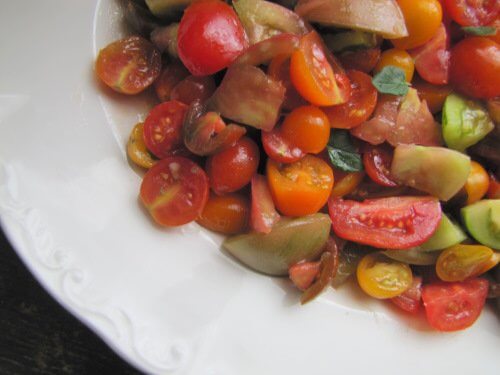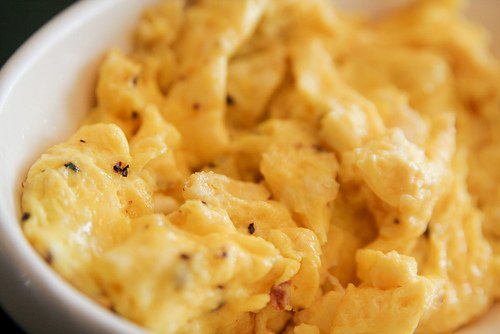Mercury in High Fructose Corn Syrup: What They’re Just Now Telling Us
In case you weren’t already avoiding this harmful sugar in the foods that you serve your family, here’s some great motivation to work towards doing so.
Mercury has been discovered in quite a list of foods containing high-fructose corn syrup (such as granola bars, yogurt, ketchup, jelly and jam, juice and pops, canned soups and many more).
That’s right, folks, more mercury!
Whole foods win again.
As if we needed another reason to avoid high fructose corn syrup. (You’ll want to put down that soda now.)
Last week two studies were released showing that mercury was found in some high fructose corn syrup (HFCS).
One study tested 55 brand-name foods (containing HFCS) from grocery store shelves in Fall 2008, and found mercury in nearly one-third of those products. Do you have any of these at home?
- Coca-Cola Classic
- Hershey’s Chocolate Syrup
- Smucker’s Strawberry Jelly
- Nutri‐Grain Strawberry Cereal Bars
- Hunt’s Tomato Ketchup
The Mercury Risk
Mercury is a toxin to the brain. There is no “safe amount” to ingest. It is especially dangerous for children and unborn babies whose brains are developing.
Even if the doses are small, it’s a concern because Americans consume so much HFCS on a regular basis: 12 teaspoons per day on average.
The Questions
How could the mercury be there?
HFCS is produced using many chemicals, and those chemicals are made by various manufacturers. Some of those manufacturers still use an outdated process involving mercury to make two of the chemicals, which can then be sold to HFCS producers. Consequently, mercury residue can end up in the final product.
The FDA knew about the possibility… and did nothing. In 2005 a researcher at the FDA named Renee Dufault tested samples of HFCS, and found mercury in nine of twenty samples. The FDA chose not to tell consumers, change industry standards, or do any more testing. Renee Dufault left the FDA, and those test results are now published in the current issue of Environmental Health.
How did the Corn Refiners Association (CRA) respond?
This study appears to be based on outdated information of dubious significance. Our industry has used mercury-free versions of the two re-agents mentioned in the study, hydrochloric acid and caustic soda, for several years…
In 1983, the U.S. Food and Drug Administration formally listed high fructose corn syrup as safe for use in food and reaffirmed that decision in 1996.
The CRA’s response basically assures me that any HFCS I consumed during my childhood did in fact contain mercury. They do not want to assume any responsibility or do additional testing for the current findings.
What to Do
So how do you know if the HFCS in your other food contains mercury? They won’t tell you. The HFCS manufacturers consider it “proprietary.” You may want to avoid it altogether.
You can call the customer service number on the back of food packages and express your concern.
In 2007, then-Senator Obama introduced legislation that would phase out the use of mercury, but it did not pass. Four chlorine factories in the United States (and more outside the U.S.) still use mercury to create those chemicals, which can then be sold to HFCS manufacturers. You can send an email to the CEOs of those companies.
High fructose corn syrup is as safe as sugar? Give me a break.
Sources:
- Institute for Agriculture and Trade Policy (IATP)
- Environmental Health article by Renee Dufault, et al.






Check out this interesting article about High Fructose Corn Syrup and the misconceptions about the appearance of Mercury in it. You can read it here:
http://www.consumerfreedom.com/news_detail.cfm/headline/3817 as well as, this video that debunks the recent study released in the IATP report and Environmental Health article. You can view it here:
-FT on behalf of the Corn Refiner’s Association
Interesting. Does a food have to have HFCS in the ingredients to contain it? We still use ketchup occasionally that does not list that as an ingredient. I have yet to find a recipe/product for ketchup that my family likes so we just limit it for now.
Yes, it has to have HFCS. It’s the process that some of the companies are using (but not all companies), so go through the link to the post at Small Notebook, where you can read the list of the actual foods and brands that were found to contain the mercury. It’s definitely not in every ketchup or every granola bar!
Wow! That was very interesting. Thanks for forwarding the article on to us. Thank heaven for whole foods!
Stephanie, thanks so much for sharing this link. I appreciate it!